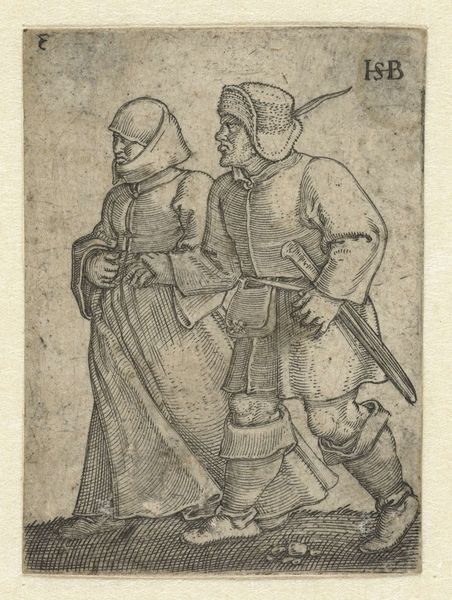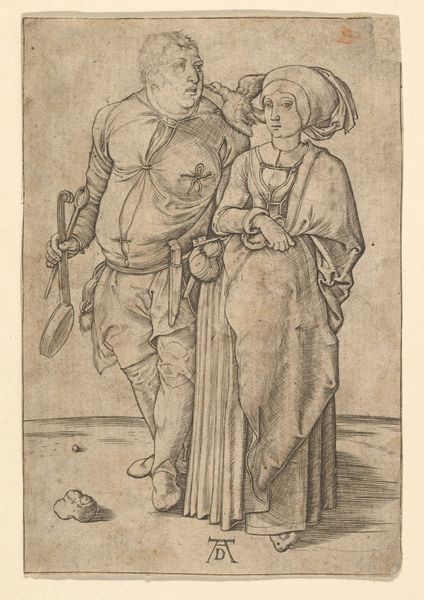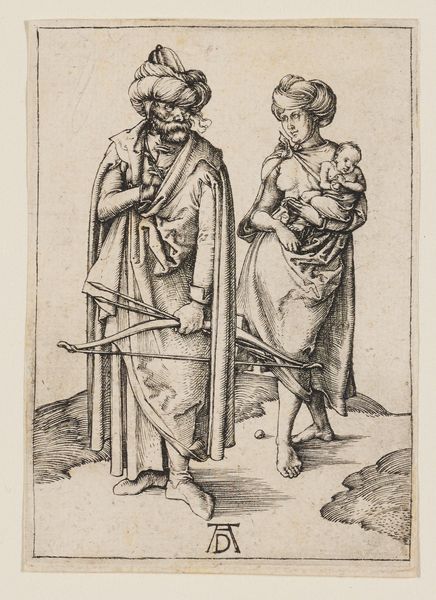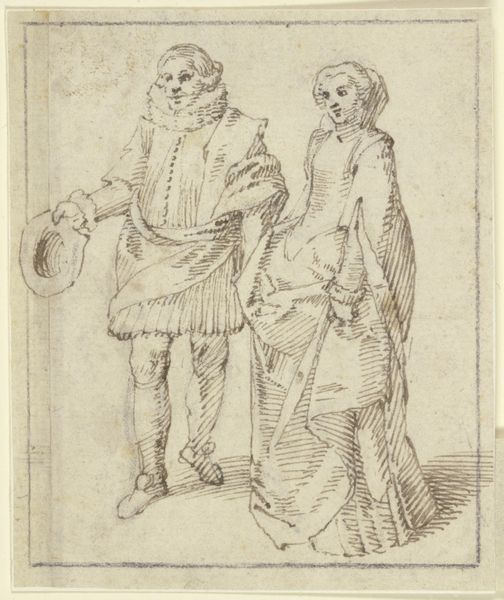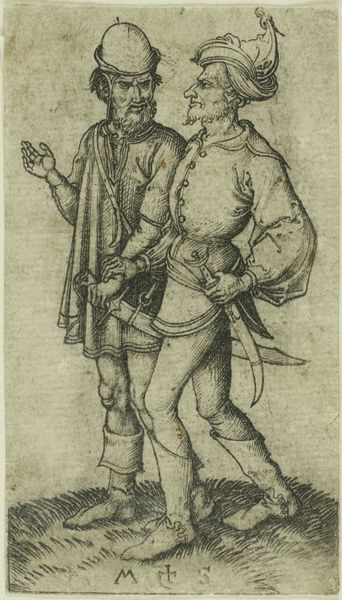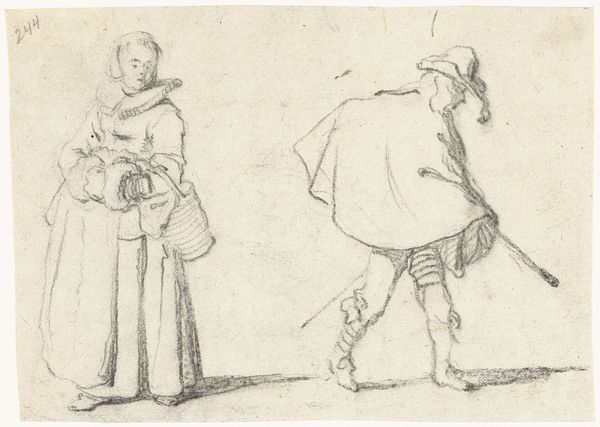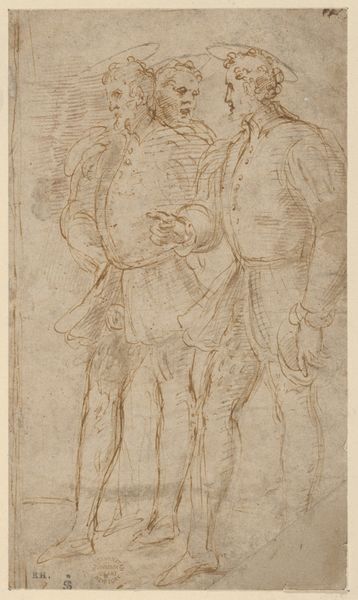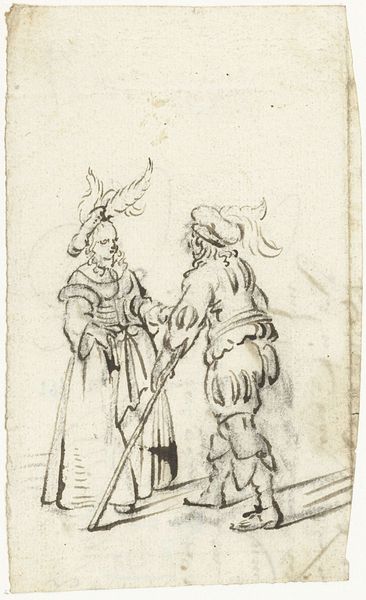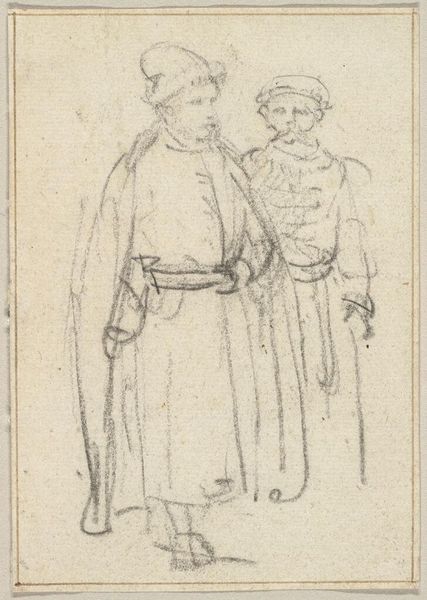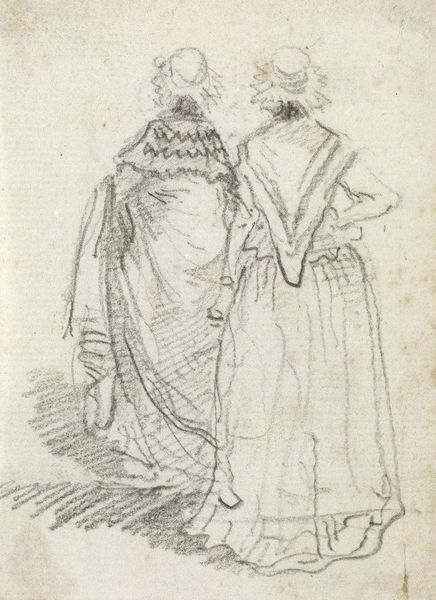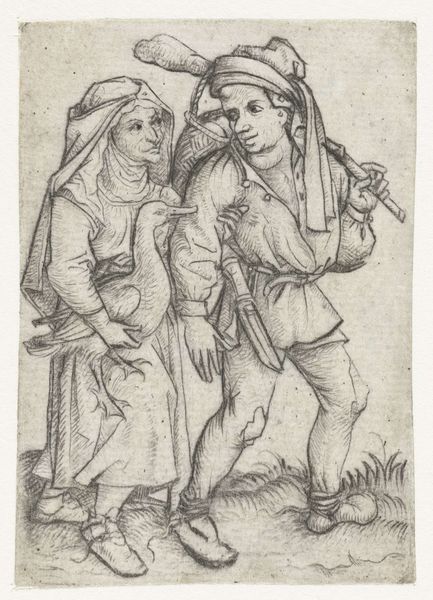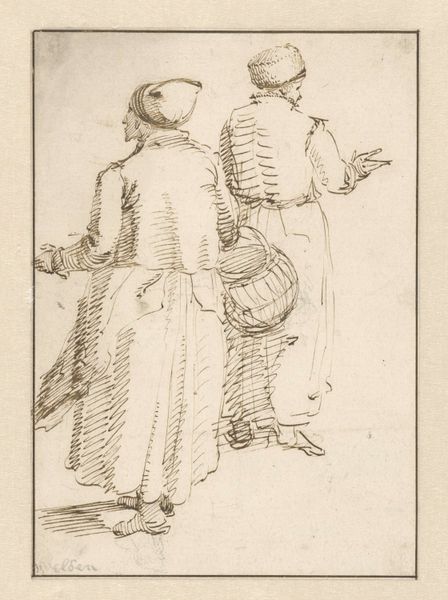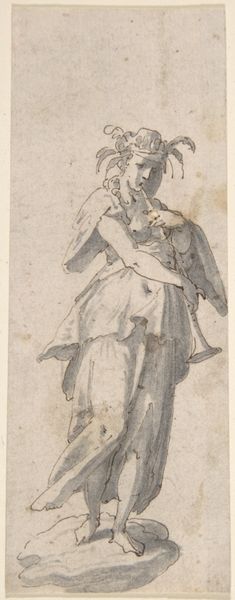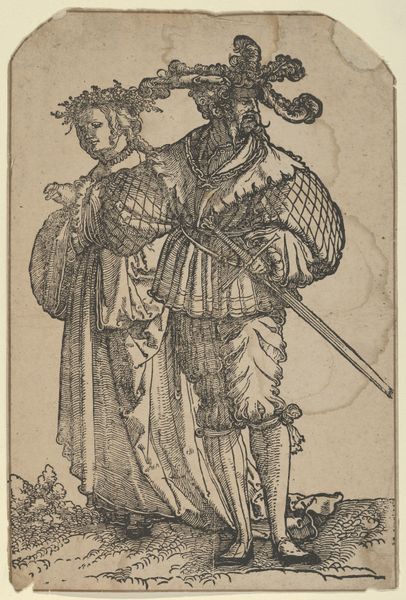
drawing, paper, ink, pencil
#
portrait
#
drawing
#
baroque
#
dutch-golden-age
#
figuration
#
paper
#
ink
#
pencil
#
line
#
genre-painting
#
history-painting
#
realism
Dimensions: height 143 mm, width 112 mm
Copyright: Rijks Museum: Open Domain
Editor: This intriguing ink and pencil drawing, titled "Two Men in 16th-Century Dress," was created in the 17th century by Pieter Cornelisz. Verbeeck. It feels like a candid snapshot despite being carefully rendered. What strikes you most about it? Curator: What fascinates me is how Verbeeck situates this image within the burgeoning visual culture of the Dutch Golden Age. While claiming to depict 16th-century figures, he is also implicitly commenting on his own society and its relationship to the past. Consider the emergent art market at this time, driving artists to find innovative niches. What public role do you think Verbeeck imagined for this drawing? Editor: Perhaps it served as a historical record, or even a costume study? Did the average 17th-century viewer have a clear idea of 16th-century fashion, and would they see it as "realistic" or stylized? Curator: Exactly. Verbeeck presents an interpretation filtered through his contemporary lens. We might ask how museums and history books shape our *own* understanding of previous eras. The act of representation, you see, is always political. It reinforces certain viewpoints while obscuring others. Are there details in the clothing that jump out to you? Editor: The one man’s hat is quite distinctive. So, it's not just about depicting clothing, but about how Verbeeck, and subsequently *we*, interpret the past through material culture? Curator: Precisely. It makes you wonder what this tells us about the Dutch Golden age preoccupation with status and historical self-image. Editor: I hadn't considered the piece in light of art's social role. I’m taking away how intertwined history and the present truly are. Curator: And that is precisely the key – seeing art as always engaged with its own social and political moment, actively shaping how we view history.
Comments
No comments
Be the first to comment and join the conversation on the ultimate creative platform.
